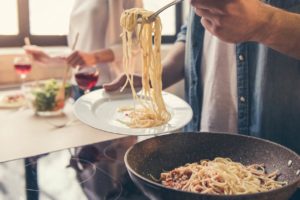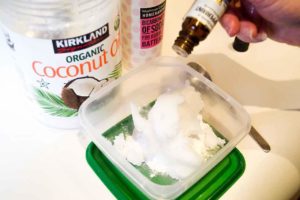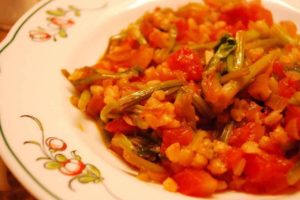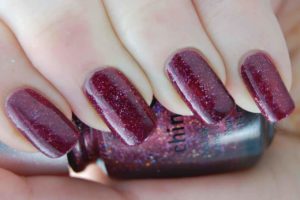The cookware you choose may cause poisoning. If you want to adopt healthy cooking methods, cookware you choose has a great importance. Using a copper pot with peeling problems in tin plating, scratched Teflon pans and worn aluminum pot cause nutrition loss as well as food poisoning.
Healthy Cooking with Healthy Cookware
Copper Pots: Foods cooked and kept in copper pots absorb some of the copper into themselves and that cause food poisoning. For that reason, in order to prevent direct contact between copper and foods, copper pots must be tinned before cooking anything.
Aluminum Pots: Aluminum pots can be affected by foods when alkaline or acidic foods are cooked. When acidic foods are kept, acidic foods start to dissolve some of the aluminum. Dissolved materials are mixed with foods and we eat them eventually. Since this process is very slow, effects of this can’t be observed directly. But after years, side effects like forgetfulness starts to show up. Also, excessive aluminum amounts reduce the absorption of minerals like calcium, iron and phosphorus.
Clay Pots: Acidic and alkaline foods don’t affect clay pots but sudden heat changes may cause fractures. Surface cracks create an environment for microorganism population and increase their numbers.
Glass Pots: Since they aren’t affected by acidic and alkaline foods, they can be used for cooking and keeping but be careful about sudden heat changes, they may shatter and cause damage.
Teflon Pans: They are refractory but they may be dangerous in case they are scratched. Teflon is a composite material and it consists of layers, layers of different materials. Only top layer of Teflon protects foods from other harmful materials and when it’s gone, harmful materials start to mix and poison our foods. For that, if you want to use Teflon, you should use a wooden spoon.
Pressure Cooker: You shouldn’t use it unless you are in a hurry. Normally water boils at 212 degrees F (100 degrees C) but if we increase pressure, boiling temperature of the water will increase too. When we cook foods above 212 degrees F, they cook faster but it causes nutrient and mineral loss.
Cooking Methods to Boost Nutrients
- While grilling, placing meats close to fire creates carcinogenic substances. Also dripping fat cause vitamin B loss. So there have to be at least 6 inches between fire and meats.
- After cooking legumes like bean, chickpea and lentil; getting rid of boiling water will decrease nutrient.
- Eating raw or undercooked egg causes digestive problems and prevents absorption of biotin. It also causes food poisoning.
- Boiling egg more than 8-10 minutes causes to form a green sulfur layer around the yolk. This causes digestive problems and reduces nutrients.
- Boiling milk for a long time also cause nutrient loss. Raw milk must be boiled 4-5 minutes after it foams up. It must be kept in the refrigerator and it must be consumed within 2 days.
- The boiling water of vitamin B rich foods like macaroni and pasta shouldn’t be wasted. Boiling water must be absorbed by macaroni or pasta. If boiling water is poured and held under cold water, the decrease in vitamin B1 amount may reach 80%.
- If noodle, rice and flour are fried, their protein amount will decrease.
- Fresh vegetables must be cut into big pieces and they must be cooked with small amounts of water. Leaf vegetables can be cooked without water because the excessive amount of water while cooking cause vitamin and mineral loss in leaf vegetables.
- Keeping green or yellow vegetables in a vinegar for a long time cause vitamin A and vitamin C loss.
- Vegetables like potato must be boiled with its skin, so it can keep its nutrients.
- Defrosting must not be done at room temperature, hot water, heater or with the sunlight. They should be defrosted in refrigerator’s middle shelf.
- While making milk puddings, cooking milk, flour and sugar cause nutrient loss. So, sugar must be added in the end or just before turning off the heat.
- Baking bread after slicing it into thin pieces cause nutrient loss.
- While making bread, muffin or cookie; fermentation (rising) of dough increase nutrients.













